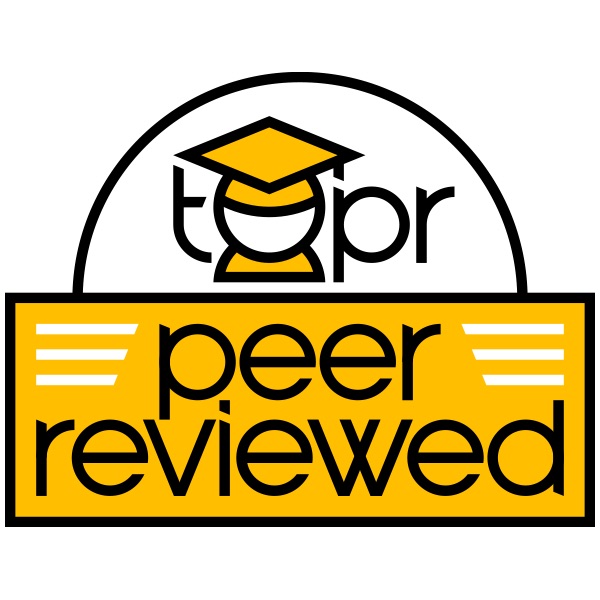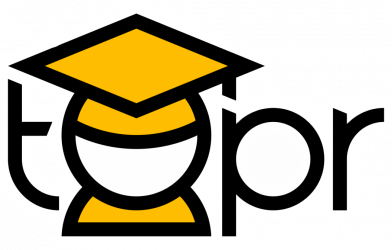Tags: Content, Data Literacy, Lifelong Learning, Peer-Reviewed Entry, Transdisciplinarity

Description
The evolving societal and professional landscape requires attention towards complex and future-oriented contexts. These include the processes and impact of digital information, technological advancements such as robotics, AI and automation, as well as global interconnectedness and the multiple opportunities that arise from these (OECD, 2021a). Conversely, it is essential to combat threats to basic human needs in education and in our professional relationships such as the North-South divide, potential risks from biased and discriminatory systems, the disruptive impact of digital innovation, the challenges of climate change and sustainability, and significant demographic and environmental changes.
These aspects are characterized by their propensity to influence different sectors, alter our socio-emotional and conceptual frameworks, as well as discipline-specific and work-related skills. They blur the boundaries of existing normative frameworks while creating new spheres of action. In order to navigate successfully in the current social and professional spheres, we as actors need a broad and transdisciplinary set of competences that go beyond specialized, niche, and purely technical abilities but also need to foster profound inner concepts and values.
Our ability to respond to complex situations is facilitated, on the one hand, by increasing explicit subject knowledge and teachable transdisciplinary skills. On the other hand, the OECD also emphasizes the importance of “non-routine cognitive and interpersonal skills” (OECD, 2021b, p. 25). Similarly, Dondi et al. elaborate on the growing “demand for technological, social and emotional, and higher cognitive skills” (Dondi et al., 2021, p. 2). Analogous distinctions are made within the Stifterverband and McKinsey’s Future Skills Framework between domain-specific and specialized skills such as those of data scientists, UX designers, and so forth, digital transdisciplinary competencies like data literacy, digital learning, or collaboration techniques, and non-digital yet equally transdisciplinary basic skills including critical reflection, adaptability, creativity, social skills, and more (Kirchherr et al., 2018). The OECD further emphasizes the importance of lifelong learning in order to continuously maintain and develop knowledge, skills and abilities and thus to be able to adapt to changes (OECD, 2021b, p. 25). Therefore, given the disruptive nature of digital technologies and the complex challenges we face today, these skills need to be nurtured consistently.
Education plays a key role in integrating this transdisciplinary approach into teaching and working methodologies, reinforcing basic skills alongside specialized knowledge as transdisciplinary “must-have skills for all”. The “Beyond Disciplinary Boundaries” project operationalizes this transdisciplinary methodology, empowering learners in universities, further education institutions, or businesses through a range of strategies:
- Enhancing new cooperative models between learning environments, such as interaction between corporations, research organizations, and higher and further education, enriches the learning process through knowledge transfer, diversity, and mutual experiences in transdisciplinary learning environments (Klös, 2022, p. 32). This expands learners’ perspectives by exposing them to relevant issues, groups, methodologies, or cases beyond their specific fields of study, allowing them to address not merely specialized knowledge and skills, but also the basic competencies and value-based concepts emphasized here.
- Relevant learning modules will be formulated to address the needs of evolving, future-oriented work and organizational methods. The innovative component is that these materials are not monothematic; they integrate (1) digital (non-specialized) basic skills, e.g. in the realms of open science, data literacy, collaborative learning or working, education for sustainable development, and others, (2) (non-digital) basic skills like informed decision-making, innovative or networked thinking, critical reflection or feedback culture, and (3) conceptual elements in terms of values or inner attitudes such as sustainability, social justice, etc.
- Methodologically, the modules incorporate innovative and learner-centered techniques that encourage participants to undertake self-learning. These include forms of informal and situated learning, such as role-playing or project-based learning, and theoretical concepts that motivate for transfer, like game theory or decision trees. An international handbook devised as part of the project encompasses a selection of other transdisciplinary techniques (Philipp & Schmohl, 2023).
Instead of targeting a single learning objective, the project seeks to enhance learners’ ability to draw connections between different contexts, consider opposing viewpoints, engage in self-reflection, and facilitate transfer to the individual setting. Clear language allows low-threshold access for learners, facilitating the usage of the learning modules as modular components in higher and professional education across disciplines, and even for purposes outside education, like disseminating information or raising awareness about a cause.
Link to Example artifact(s)
In the presented module, learners explore the topic of data literacy. The methodological entry point is Plato’s renowned Allegory of the Cave, which is applicable across numerous contexts. It exemplifies the difference between education and lack of it.
In the initial exercise, learners are guided to reflect on the primary messages of the allegory and to transfer them to their social or specific educational or professional contexts. In this way, they build further contexts with digital and AI tools based on the allegory, thereby broadening their perspective and transferring reflected aspects to other paradigms or contexts. The subsequent step imparts fundamental knowledge about data literacy and the need for training. Four key questions from the Data Literacy Charter form the framework for further exploration of the topic. Learners then relate this knowledge to their specific educational or professional setting, engaging in reflective brainstorming about their studies or work.
In the following exercise, various skills and values of data literacy are presented, with learners asked to select those pertinent to them. They subsequently fill in further gaps from the reflection in the previous section, realizing that their approach to data demands a broad spectrum of skills, knowledge, responsibilities, and values. Lastly, learners are directed to reflect on common pitfalls, notably confirmation bias and shared realities.
Exercises and thought experiments that prompt paradigm shifts are particularly suitable for transferring transdisciplinary content to other relevant settings or for testing methods in a different context. In this way, learners are supported to evaluate their knowledge, attitudes or concepts in other paradigms and to act according to individual challenges in the context of complex and ever-evolving work and organizational forms.
Supplemental Material: Learning Module #1
Link to scholarly reference(s)
Dondi, M., Klier, J., Panier, F., & Schubert, J. (2021). Defining the skills citizens will need in the future world of work. 1–19.
Kirchherr, J., Klier, J., Lehmann-Brauns, C., & Winde, M. (2018). Future skills: Which skills are lacking in Germany. Discussion Paper 1, 1–11.
Klös, H.-P. (2022). Digitalisierungsbedarfe und -potenziale in Deutschland. In J. Rump & S. Eilers (Eds.), Arbeiten in der neuen Normalität: Sieben Trilogien für die neue Arbeitswelt (Vol. 1, pp. 23–38). Springer Berlin Heidelberg.
OECD. (2021a). Germany Country Note—Skills Outlook 2021: Learning for Life. OECD SKILLS OUTLOOK.
OECD. (2021b). OECD Skills Outlook 2021: Learning for Life. OECD.
Philipp, T., & Schmohl, T. (Eds.). (2023). Handbook Transdisciplinary Learning. transcript.
Citation
Alavi, M., & Schmohl, T. (2023). A New Paradigm: Addressing Complex Challenges with Transdisciplinary Skills. In deNoyelles, A., Bauer, S., & Wyatt, S. (Eds.), Teaching Online Pedagogical Repository. Orlando, FL: University of Central Florida Center for Distributed Learning.

